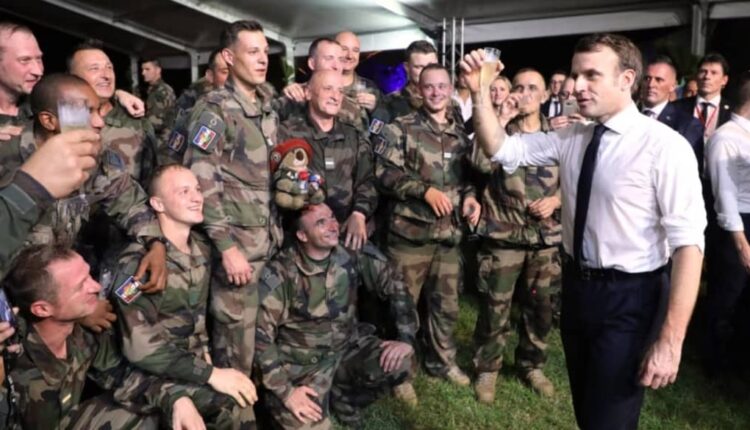French President Emmanuel Macron, on January 6, addressed the annual conference of ambassadors, outlining his foreign policy priorities for 2025.
However, his remarks during the event ignited sharp criticism from African leaders, further straining France’s already deteriorating relations with the continent.
Macron made controversial statements regarding France’s military presence in Africa, stating, “We proposed to African heads of state to reorganise our presence [military]. As we are very polite, we let them announce it first.” These words were widely perceived as dismissive and disrespectful.
In response, Chad’s Minister of Foreign Affairs, Abderaman Koulamallah, expressed deep concern over Macron’s attitude. “The government of the Republic of Chad expresses its strong concern following the recent statements by the President of the French Republic, Emmanuel Macron, which reflect a contemptuous attitude toward Africa and Africans,” Koulamallah said in a statement broadcast on national television.
Similarly, Senegal’s Prime Minister Ousmane Sonko rejected Macron’s claims as “completely erroneous.” He clarified that the withdrawal of French troops from Senegal was an independent decision, unrelated to any proposal from Paris. “No discussion or negotiation has taken place to date, and Senegal’s decision stems solely from its own will as a free, independent, and sovereign country,” Sonko affirmed.
Sonko also criticised France’s historical role in Africa, saying, “France neither has the capacity nor the legitimacy to guarantee Africa’s security and sovereignty. On the contrary, it has often contributed to destabilizing countries like Libya, with disastrous consequences for the Sahel’s stability and security.”
The recent criticisms highlighted France’s waning influence in Africa. Countries such as Senegal and Tchad have terminated military cooperation with France, deeming it incompatible with their sovereignty. This trend reflects a broader shift as African nations seek to redefine their security strategies, focusing on regional cooperation and self-reliance.
Further exacerbating tensions, Macron remarked, “France was right to intervene militarily in Africa against terrorism since 2013, but African leaders forgot to thank us.” This statement provoked outrage among African military analysts and the local population, who argue that France’s interventions have yielded little progress in stabilizing the region. Instead, security situations in Mali, Niger, and Burkina Faso worsened during the French military presence.
Analysts pointed out that African military governments have had to step in to restore territorial integrity and continue the fight against terrorism. Critics question what achievements Macron expects gratitude for, given the widespread dissatisfaction with France’s approach.
The military cooperation breakdown between France and African nations stemmed from years of perceived ineffectiveness and growing anti-French sentiment. While Macron’s latest comments may have intensified the backlash, the underlying issues reveal a broader discontent with France’s role in Africa—a sentiment African leaders are increasingly voicing.
France’s declining presence in Africa serves as a reminder that respect for sovereignty and genuine partnership are crucial for future cooperation. However, Macron’s dismissive tone risks further alienating African nations and undermining France’s standing on the continent.

